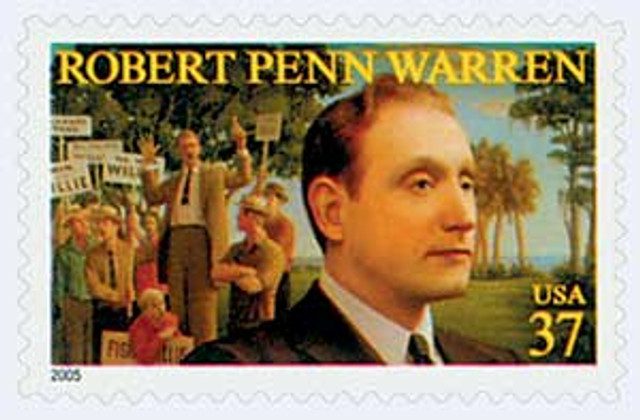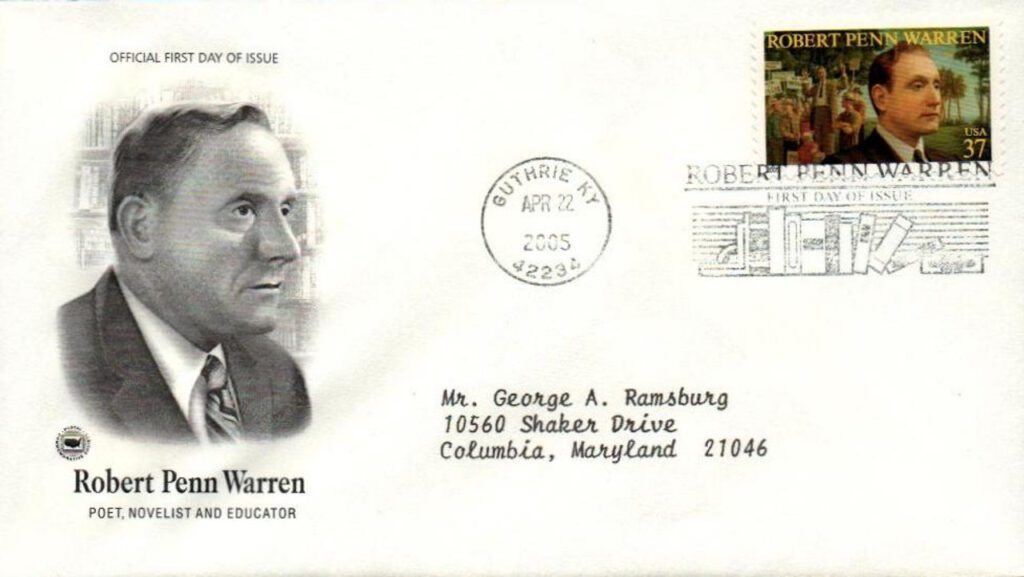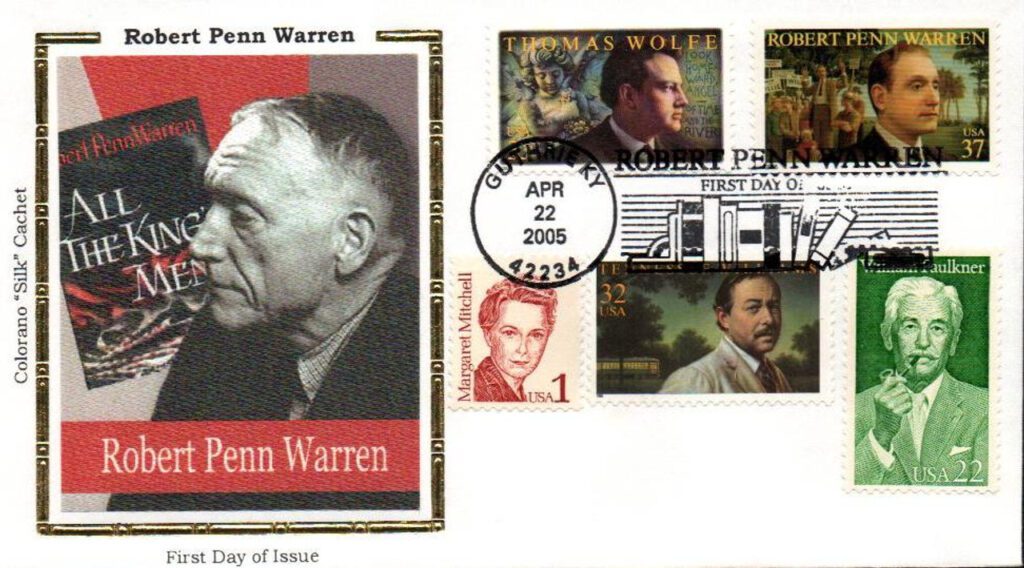Author Robert Penn Warren was born on April 24, 1905, in Guthrie, Kentucky.
The grandson of Confederate Civil War veterans, Warren grew up listening to their tales about the war, which would later influence his writing. When he was 15, Warren prepared to go to the US Naval Academy, but his brother accidentally hit him in the eye with a stone, leaving him nearly blind in that eye. In later years, Warren said he was ashamed that he couldn’t serve in the military because of his injury, but it led him down the path to becoming an accomplished author.

Warren went on to attend Vanderbilt University where he studied engineering. While there, he joined a group of poets known as the Fugitives, and published his first works in their magazine, The Fugitive. By the time Warren graduated in 1925, he decided to be a writer.
Warren went on to graduate studies at the University of California and Yale University, before becoming a Rhodes scholar at Oxford. After graduating from Oxford, he took a job as an English teacher at Southwestern College in Memphis, Tennessee. This marked the start of a long and distinguished career at several universities that would include Vanderbilt and Louisiana State.
In 1939, Warren and one of his colleagues at Louisiana State published Understanding Poetry, a textbook that outlined many of the new ideas of the day, improving literary studies. While at Louisiana State, Warren also helped found the Southern Review, which became one of the leading literary magazines in the country.
Warren then took a job as director of creative writing at the University of Minnesota. While there he made time to write three novels, though two would never be published. Night Rider was the first of 10 novels that he would publish in his lifetime, and it made him a popular literary figure.
Warren’s works explore the interaction of past and present, the search for individual identity, and the nature of evil. His book All the King’s Men follows the rise and fall of a ruthless Southern politician. It is the most widely read of all his works and won the 1947 Pulitzer Prize for Fiction.
Warren left Minnesota in 1950, and took a job as a professor of playwriting at Yale. Around this time, he began writing poetry again for the first time in years. Two of his books of poetry, Promises: Poems, 1954-1956 and Now and Then: Poems, 1976-1978, would go on to win Pulitzer Prizes. Warren established himself as a leading literary figure in the country, receiving several prizes and honorary degrees. In 1985, he was appointed the first US Poet Laureate. He died four years later on September 15, 1989.
Click here to read some of Warren’s poetry.
| FREE printable This Day in History album pages Download a PDF of today’s article. Get a binder or other supplies to create your This Day in History album. |
Discover what else happened on This Day in History.




